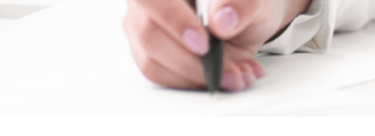
Advice cards
Refine search
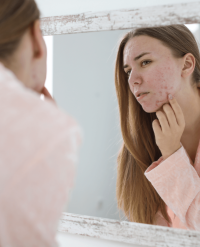
- Acne
How to cope better with hormonal acne?
Acne sometimes lasts or appears well beyond adolescence, especially in women. Hormonal factors are one of its specific characteristics, and pre-menstrual flare-ups are observed in around half of adult acne patients. Pimples often appear on the lower face or neck before or during menstruation. Hormonal acne in adult women is different from that seen in adolescence, and is characterized by a predominance of inflammatory (red) pimples, associated with mixed to oily skin (mainly on the T-zone of the face). The skin is thinner and more sensitive to daily external aggressions, which favors the appearance or persistence of imperfections. Acne is rarely severe, but the risk of scarring is high and the psychological impact significant.Solutions dedicated to hormonal acne in adult women are available to help you cope better.
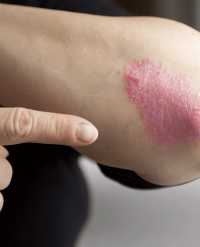
- Psoriasis
How to relieve itching caused by plaque psoriasis?
Plaque psoriasis is a chronic, inflammatory skin disease which develops in the form of flare-ups. It is characterized by the regular appearance of red and scaly plaques. Two mechanisms are involved: skin inflammation, responsible for the red plaques, and accelerated skin renewal, responsible for the appearance of scales. Itching is often associated with these plaques and can have a significant impact on daily activities. Some simple tricks can help you live better with your psoriasis.
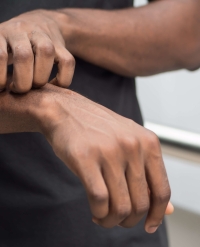
- Pruritus
How to relieve itching on a daily basis?
Itching, also called pruritus, is defined as unpleasant skin sensations that cause an irresistible urge to scratch. When they are chronic, they are often associated with skin diseases such as eczema, psoriasis or seborrheic dermatitis. They can also occur without any apparent skin lesions and can significantly affect the quality of life of sufferers, in particular in terms of sleep. Dry skin is one of the most significant causes of itching. But there are simple solutions for no longer being affected by itching on a daily basis.
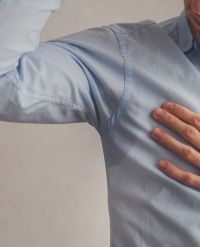
- Hyperhidrosis
How to live better everyday with excessive sweating?
Sweating is a normal physiological response to increased body temperature (heat, exercise, fever). Emotional states (stress, fear, anger) can also trigger sweat production. In some people these mechanisms can go haywire and induce excessive sweating, or hyperhidrosis. It can affect the whole body or only certain parts (armpits, feet or hands). It often has a significant impact on quality of life. Solutions exist to better manage excessive sweating.
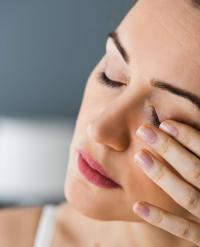
- Eczema
- Pediatrics
Live better with eyelid eczema
Eyelid eczema, also known as eyelid dermatitis, is characterized by the appearance of dry, red plaques that cause itching and burning sensations. It can be caused by atopy (atopic eczema) or contact with an irritant (irritant eczema) but is most often due to an allergic reaction (contact eczema). It can affect both the upper and lower eyelids and cause discomfort and pain. There are a few tricks for limiting eyelid eczema flare-ups and keeping it from getting worse.
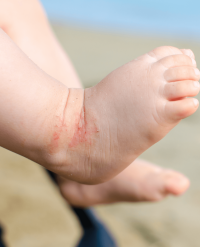
- Eczema
- Pediatrics
How to care for your child’s atopic skin?
Atopic eczema is a chronic skin disease characterized by flare-ups with red and itchy plaques. Skin is drier, more fragile and no longer properly plays its role as a protective barrier. It is therefore hypersensitive to its environment and inflames very quickly on contact with allergens or irritating substances. With a few simple habits, you can improve your child’s skin condition and live better with their eczema.